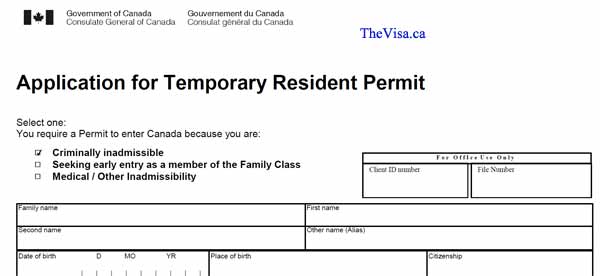Entering Canada as a Truck Driver with a DUI
Truck Drivers, and any class of professional or commercial drivers, need to be wary of DUI charges in general. Receiving a DUI or other driving while intoxicated charge can have severe implications on the career of a Truck Driver. Many states have lower legal limits for blood alcohol concentration (BAC) testing in relation to professional and commercial drivers, sometimes as low as .04% instead of the typical .08% BAC. Some states also prohibit professional and commercial drivers to take part in conditional discharge of DUI diversion programs, which means that even first time offenders will have no choice but to receive a DUI on their criminal record.
Long Haul Truck Drivers in particular need to be aware of the implications of having a DUI when traveling to Canada. Even if you have a valid reason to enter Canada for work obligations, a DUI arrest or conviction on your record will make you criminally inadmissible. DUIs and other driving while intoxicated charges are treated as indictable offenses under the Canada Criminal Code. Because you may be required to make a delivery over the border on short notice, it is important that you take steps to overcome your criminal inadmissibility. The worst case scenario is the officer turns you away at the Canadian border and you are unable to make the delivery. This type of delay could eventually result in lost contracts.
You can overcome your inadmissibility to Canada by either applying for a Temporary Resident Permit (TRP) or Criminal Rehabilitation. A TRP is useful for Truck Drivers that have upcoming business in Canada, as it allows you to get special permission to enter the country and is relatively quick to process. For example, if a TRP application is submitted at the Canadian border, it is possible that within an hour you may have received a valid TRP and can be on your way. Keep in mind that you will need to satisfy the officer that you have complied with the terms of your sentencing and are not a risk to Canada by providing the necessary forms and documentation. Whether you successfully submit your TRP application at the border or at a Canadian Consulate, you will receive a TRP with an expiration date (from 1 day to 3 years, depending on the circumstances). Once that TRP has expired, you will have to reapply under the same conditions.
Applying for Criminal Rehabilitation at a Canadian Consulate requires many of the same documents as a TRP application. However, a Criminal Rehabilitation application takes much longer to process, up to 1 year or more in some cases. The advantage of receiving Criminal Rehabilitation is you will never need to get special permission to enter Canada again.
Truck Drivers have an Advantage
Being a commercial Truck Driver gives you an advantage when applying for special permission to enter Canada. If you are considered a business visitor to Canada, the officer will weigh this in his or her final decision. In general, the success rate for Truck Drivers is relatively high in comparison with other types of applicant. Long Haul Truck Drivers are a driving force behind the shared Canadian and American economy. As such, allowing shipments to come through the border is an important economic consideration.
FAST Pass
Many Long Haul Truck Drivers with business in Canada are members of the Free and Secure Trade (FAST) program. This is a joint program established between U.S. Customs and Border Protection and the Canada Border Services Agency (CBSA) which allows members expedited crossing of borders for commercial shipments. The benefits of being a member of the FAST program are many:
Access to dedicated lanes at the border, if available
Minimal documentation required to clear the border
Fewer delays and reduced delivery times
FAST membership card can be used as proof of identity and citizenship
If you are a Long Haul Truck Driver who crosses at major border points like the Ambassador Bridge, having a FAST membership card can make a big impact on job performance. However, having a DUI or any other criminal offence on record may disqualify you from registering in the FAST program. In order to become a "low risk" candidate and qualify for the FAST program, you will need to apply for the previously discussed Criminal Rehabilitation so that you can overcome the inadmissibility from a prior DUI conviction. Once the Criminal Rehabilitation is granted, you will able to reapply for the FAST program with a clean record.
If you are a Long Haul Truck Driver or Commercial Driver and a DUI or other conviction is preventing you from conducting business in Canada, contact our team of Canadian immigration lawyers and consultants today. Find out how our experience and knowledge can work for you!

